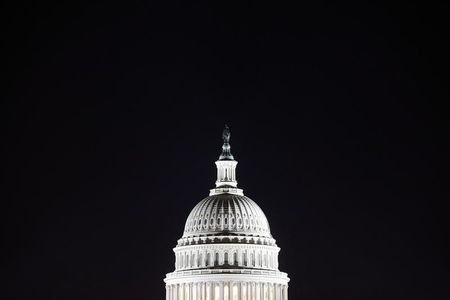By Kevin Drawbaugh
WASHINGTON (Reuters) - When the U.S. Congress returns to work next week after Tuesday's midterm elections, one of its first tasks will be dealing with dozens of expired corporate tax breaks, whose renewal and extension are seen as likely though not guaranteed.
Known as "extenders," the 55 temporary laws - including tax breaks for depreciation and research - have been in limbo since the end of 2013, when their last authorized extension ran out.
Corporations have been clamoring for months for Congress to renew the laws, which also involve offshore finance, green energy and narrow interests such as Puerto Rican rum production.
But lawmakers, deeply divided over fiscal issues, have not acted and now are under heavy pressure to deal with the extenders in the "lame duck" session that ends in December.
The session is expected to cover only 14 legislative days, so lawmakers will have to work fast and stay focused, with must-pass budget items also on their agenda, analysts said.
"The fate of the 55 expired special interest tax breaks ... will be the marquee legislative fight of the lame duck session," said Guggenheim Securities senior policy analyst Chris Krueger.
In a research note, Krueger offered a 70 percent probability that Congress will renew retroactively and extend the entire package through 2015. Others around Washington are not so sure.
"Suddenly, passage of the extenders no longer looks certain," said Greg Valliere, chief political strategist at Potomac Research Group, in a research note last week.
Young fiscal hawks may resist renewal, arguing that many of the extenders provisions are egregious examples of Washington picking winners and losers in the private sector, he said.
Some of the laws could be in danger, such as a tax break for NASCAR race tracks, testing "whether the pro-business (Republican) leadership can fend off restive Young Turks who don't see this as a proper role of government," Valliere said.
The extenders also include tax deductions for individuals for college tuition costs, state and local sales taxes paid, schoolteacher expenses and the child tax credit.
A wild card will be whether Democrats try to add new curbs on tax "inversions" to extenders legislation. A 2013-2014 surge in these deals - in which U.S. companies reincorporate overseas to cut U.S. tax costs - has faded, but some Democrats want action beyond a recent Treasury Department crackdown.
Anti-inversion legislation is unlikely to win approval this year, said Height Securities analyst Henrietta Treyz on Monday.
Such measures will likely be put forward during the lame-duck session as possible offsets for government tax revenue losses that would be presented by separate Republican proposals to make certain temporary extender laws permanent.
"However, we do not believe at this time that a permanent extension of any of the tax credits sought by members of Congress will be enacted into law this year," Treyz said.

"We expect that, while the road to a final bill will be rocky, it will ultimately result in a short-term extenders package being authorized," she said.
(Reporting by Kevin Drawbaugh; Editing by Steve Orlofsky)
